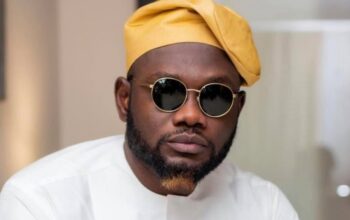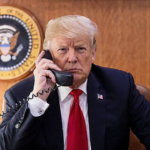OB Amponsah, a prominent Ghanaian comedian and entertainer, has shared an insightful perspective on the need for Ghanaian entertainers to expand their horizons beyond Nigeria. This statement highlights the evolving dynamics within the entertainment industry in West Africa and underscores the importance of broader regional and international engagement.
OB Amponsah’s remark points to the tendency of Ghanaian entertainers—be they musicians, comedians, or other artists—often focusing heavily on the Nigerian market. This is understandable, as Nigeria is the largest entertainment hub in West Africa, with its Nollywood, music industry, and comedy scene dominating the continent.
However, Amponsah argues that while Nigeria offers immense opportunities, Ghanaian entertainers should not be overly reliant on Nigeria as the primary destination for career growth or market success. There’s an urgent need to break free from this dependency and look to other parts of Africa and beyond.
Africa is a huge continent with diverse cultures, languages, and entertainment preferences. As Amponsah suggests, Ghanaian entertainers have an opportunity to explore other African markets such as South Africa, Kenya, Tanzania, and Uganda, where entertainment industries are growing and thriving. These markets offer opportunities for cross-border collaborations, broader exposure, and new fan bases.
For example, South Africa’s music scene, with genres like Amapiano, has gained international recognition, while Kenya’s burgeoning film industry, which produces popular content in Swahili and English, is attracting global attention. Ghanaian entertainers can tap into these regional scenes to build pan-African appeal.
The rise of digital platforms like YouTube, Spotify, Apple Music, TikTok, and Netflix has democratized entertainment and opened doors for global exposure. OB Amponsah encourages entertainers to use these platforms to promote their content beyond the traditional markets and explore a wider international audience.
For example, Ghanaian artists like Sarkodie and Stonebwoy have gained popularity internationally, especially within the diaspora communities, through these platforms. Comedians like OB Amponsah and others can similarly leverage social media and streaming platforms to reach new audiences and even explore global collaborations with entertainers from other parts of the world.
In a bid to stand out in the crowded African entertainment space, Ghanaian entertainers must focus on developing a distinctive Ghanaian brand that resonates both locally and globally. OB Amponsah’s success as a comedian is partly due to his ability to blend Ghanaian humour, culture, and social commentary in ways that connect with diverse audiences.
Whether through music, comedy, or other forms of art, embracing the uniqueness of Ghanaian culture—whether it’s through Afrobeats, highlife, or kpalongo music, or incorporating local languages such as Twi, Ga, or Ewe—can make Ghanaian content more recognizable and relatable to audiences outside of the Ghanaian diaspora.
The future of African entertainment lies in collaborations across borders. OB Amponsah suggests that Ghanaian entertainers should build networks and partnerships with other African artists, producers, and creatives. Such collaborations could involve co-productions, joint tours, and multi-country performances that tap into different regional fan bases.
Collaborations between Ghanaian and Nigerian artists have proven successful, with numerous cross-country partnerships in music, comedy, and film. However, taking it a step further to include artists from other African countries can help diversify the content and provide broader access to audiences beyond the traditional Ghana-Nigeria axis.
OB Amponsah also emphasizes that entertainment is not just about reaching new markets but also about creating innovative content that speaks to universal themes while still celebrating local identity. Creators who can blend creativity with cultural authenticity often have a better chance of appealing to audiences across the world.
Whether it’s through new comedic formats, innovative music videos, or unique storytelling in film, creativity remains a critical factor in gaining international recognition.
While OB Amponsah’s statement is forward-thinking, there are challenges that Ghanaian entertainers might face as they attempt to explore beyond the Nigerian market:
While there is massive potential across Africa, some markets might already be saturated with content from other countries. Ghanaian entertainers would need to differentiate themselves and offer something fresh.
Although many African countries share similar cultural contexts, language can still pose a challenge. Ghanaian entertainers might need to find ways to appeal to non-English speaking African audiences, perhaps by using subtitles, dubbing, or multilingual content.
In some parts of Africa, the infrastructure for producing high-quality content may not be as advanced as in Nigeria or South Africa. Ghanaian entertainers may need to invest more in production quality or seek collaborations with industry professionals in other countries.
In some instances, Ghana’s entertainment industry might lack the same level of institutional support, funding, and networking opportunities available to Nigerian entertainers. This could limit the resources available to Ghanaian artists looking to break into new markets.
For Ghanaian entertainers to explore new markets effectively, both the government and private sector should consider supporting the industry through policies that promote regional and international collaborations. This could include incentives for co-productions, travel grants for international performances, and investment in industry infrastructure.
Ghanaian entertainers should attend international events such as Africa Magic Viewers’ Choice Awards (AMVCAs), MTV Africa Music Awards, PAN-African film festivals, and music festivals to network with industry leaders and connect with audiences outside of Ghana.
As the digital age continues to evolve, streaming platforms and social media provide unique opportunities to promote local talent. Ghanaian entertainers should be encouraged to make the most of these platforms to self-promote and engage directly with their audiences globally.
OB Amponsah’s call for Ghanaian entertainers to explore beyond Nigeria is timely and reflects the need for African artists to adopt a more pan-African approach. By embracing the rich diversity of the African continent, leveraging digital platforms, collaborating across borders, and maintaining their unique identities, Ghanaian entertainers can position themselves for success in both regional and global markets. The future of Ghana’s entertainment industry, as Amponsah suggests, will depend on how well these artists expand their creative horizons while maintaining the authenticity that defines them.
It seems that OB Amponsah is offering a refreshing perspective on the debate surrounding the comparison between Ghanaian and Nigerian comedians. While some Ghanaian entertainers might view Nigeria as the main competitor or benchmark in the industry, OB’s stance reflects a broader view of Africa’s entertainment landscape. His point about exploring other territories is significant—Africa is a diverse continent with many countries, each with its own unique cultural and entertainment markets.
By focusing on expanding beyond the Nigerian market, Ghanaian comedians could tap into new audiences and opportunities. This approach not only reduces the pressure of direct competition with Nigerian comedians but also helps to diversify the reach of Ghanaian comedy across different African nations, or even globally, where different tastes and styles may prevail.
OB Amponsah’s opinion aligns with the growing trend of African entertainers seeking to expand their influence in different regions, rather than just dominating within one space.









